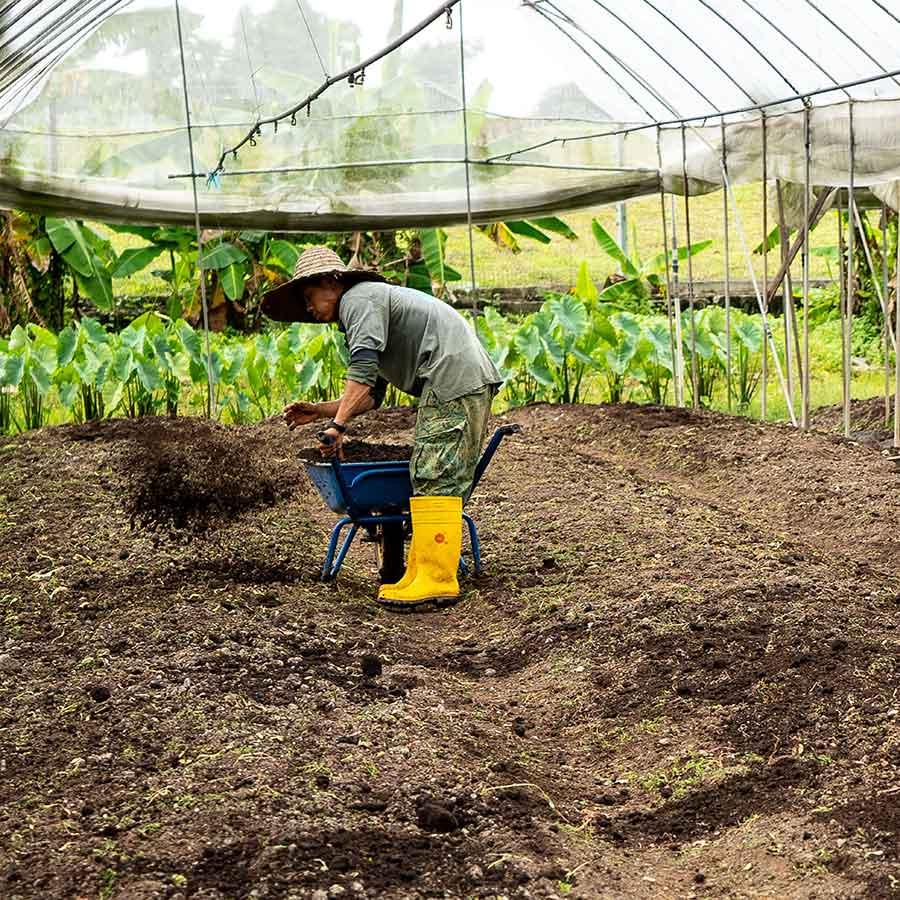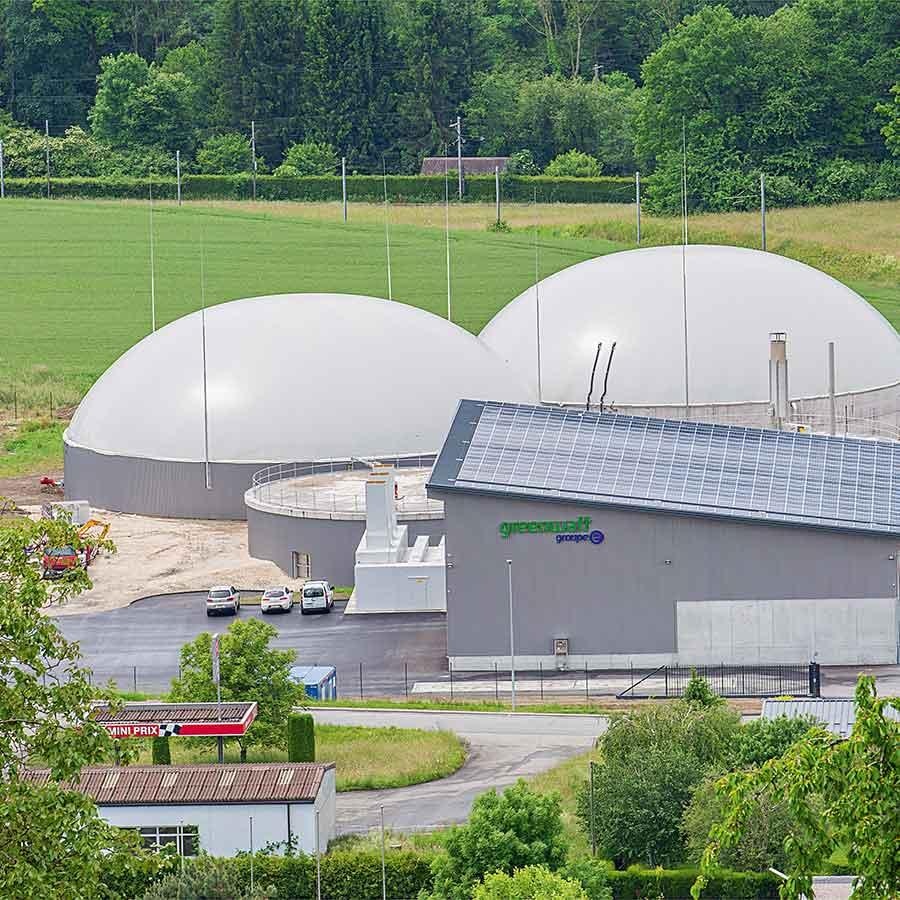Across many countries in Europe, Australasia and Asia, we’re unlocking the value of used coffee grounds through various post-use valorization initiatives. The following examples showcase just what’s possible when circular thinking is put into practice.
USED COFFEE GROUNDS MAKE RICH FERTILISER
One of the most common applications for used coffee grounds is as a natural fertiliser. In farming, compost made from used coffee grounds is surprisingly versatile, offering numerous benefits such as improved soil drainage, water retention and aeration. In addition, they acidify the soil, acting as a natural repellent that deters pests from damaging crops.
A natural compost in Singapore
On the two-hectare Quan Fa Organic Farm tucked away in the countryside of Kranji, Singapore, the farmers believe in the power of natural and grow their produce free of chemicals and pesticides. The farm produces 100-300kg of compost per day, mixing used Nespresso coffee grounds with sawdust, vegetable waste, yeast, soil and fertiliser.

The energy accrued from the coffee grounds of one capsule is the same as that required to make a new capsule from recycled aluminium.

USED COFFEE GROUNDS BECOME NEW ENERGY SOURCES
Added to slurry and manure in a methanation process, used coffee grounds produce a biogas that generates heat or renewable electricity.
In 2016, in partnership with Groupe E Greenwatt, Nestlé Waters opened an agricultural biogas facility in Switzerland that produces renewable energy, or biogas, from used coffee grounds. The plant processes 28,000 tonnes of manure each year from 27 local farms, as well as 3,000 tonnes of used coffee grounds from the Nespresso and Nescafé production and recycling sites in Switzerland. The biogas produces enough energy to power 1,000 households, and heats water for cleaning at the Henniez bottling plant.
In Holland, the biogas is even being used to power the bus network across cities.
Wherever possible and when it makes environmental sense to do so, we will seek to implement biogas solutions.
Above all, our experience with used coffee grounds from capsules has made one thing abundantly clear: transforming conventional thinking into circular thinking wins every time.
Article updated in: November 2018

